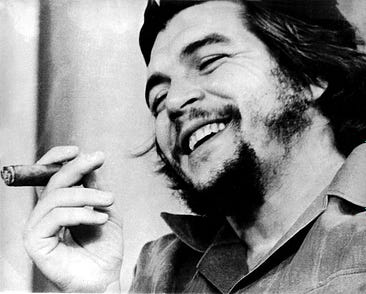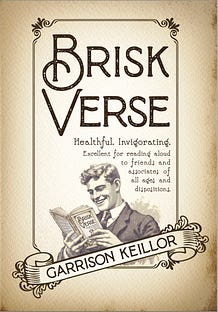|
 |
The Writer's Almanac from Friday, June 14, 2013
"Bees and Morning Glories" by John Ciardi, from The Collected Poems of John Ciardi. © The University of Arkansas Press, 1997.
ORIGINAL TEXT AND AUDIO - 2013
Today is Flag Day. It was on June 14, 1777, that the Second Continental Congress approved the Stars and Stripes as the flag of the United States, with a star for each state and 13 red and white stripes to commemorate the original 13 colonies. Of course, in 1777, there were only 13 states, and therefore only 13 stars, and their arrangement wasn't consistent: Sometimes the stars were in a circle, sometimes in rows, and there were a few occasions in the 19th century in which the stars appeared in the shape of a star. Our current incarnation of the flag has been around since 1960, with Hawaii's admission to the Union. In the event that Puerto Rico is officially made a state, there are already some 51-star designs in the works.
It's the birthday of Ernesto "Che" Guevara, born Ernesto Guevara de la Serna in Rosario, Argentina (1928). As a young man, he took a year off from college to travel around South America by motorcycle with his friend Alberto Granado, and he recorded their adventures in his journal, which was later published by his daughter as The Motorcycle Diaries (1993). He was disturbed by all the poverty and oppression he saw among the Indian people of Latin America, and he came to believe that the only solution was violent revolution.
After graduating from medical school in 1953, he went to Mexico, where he met the Castro brothers, Raúl and Fidel, and joined them in their plan to overthrow the Batista dictatorship in Cuba. Their forces landed in Cuba in November 1956, and were almost wiped out by Batista's army; the survivors fled to the mountains of the Sierra Maestra and formed a guerilla army, which eventually overthrew Batista and established a Marxist government. By now, Guevara was Castro's right-hand man, and he held several top government posts. He visited New York to speak at the United Nations as the head of the Cuban delegation, and he appeared on the news show Face the Nation. He traveled to China, Africa, Europe, and the Middle East on a speaking tour. He was ill-suited for diplomatic work; his nature was confrontational and uncompromising.
In 1965, Guevara dropped out of the picture. In an undated letter to Castro, he renounced his Cuban citizenship and resigned from his government positions, writing, "Other nations of the world summon my modest efforts," and that he had therefore decided to go and fight as a guerrilla "on new battlefields." He tried to effect revolution in the Congo, but failed, and traveled to Bolivia. Later, while leading a guerilla army against the Bolivian regulars, a glimmer of his medical calling remained; he treated and released enemy soldiers. He was eventually captured and executed.
Be well, do good work, and keep in touch.®
PERSONALIZED COPY of Brisk Verse by Garrison Keillor
BRISK VERSE by Garrison Keillor, a collection of original invigorating verse. Read it to yourself or aloud to friends, family, or passersby. One hundred and thirty-two poems in all — diverse topics, including Brevity, Thongs, Minnesota, Manners, Mozart, Marilyn Monroe, Failure, Fatherhood, Episcopalians, Plumbing, Spaghetti, Spring, Online Love, Eighty, and the National Anthem as it might’ve been written by Whitman, Dickinson, Eliot, Frost, and other poets. Illustrated with quirky antique advertisements for tonics and gizmos. With a foreword by the author.
If you are a paid subscriber to The Writer's Almanac with Garrison Keillor, thank you! Your financial support is used to maintain these newsletters, websites, and archive. If you’re not yet a paid subscriber and would like to become one, support can be made through our garrisonkeillor.com store, by check to Prairie Home Productions, P.O. Box 2090, Minneapolis, MN 55402, or by clicking the SUBSCRIBE button. This financial support is not tax deductible.


